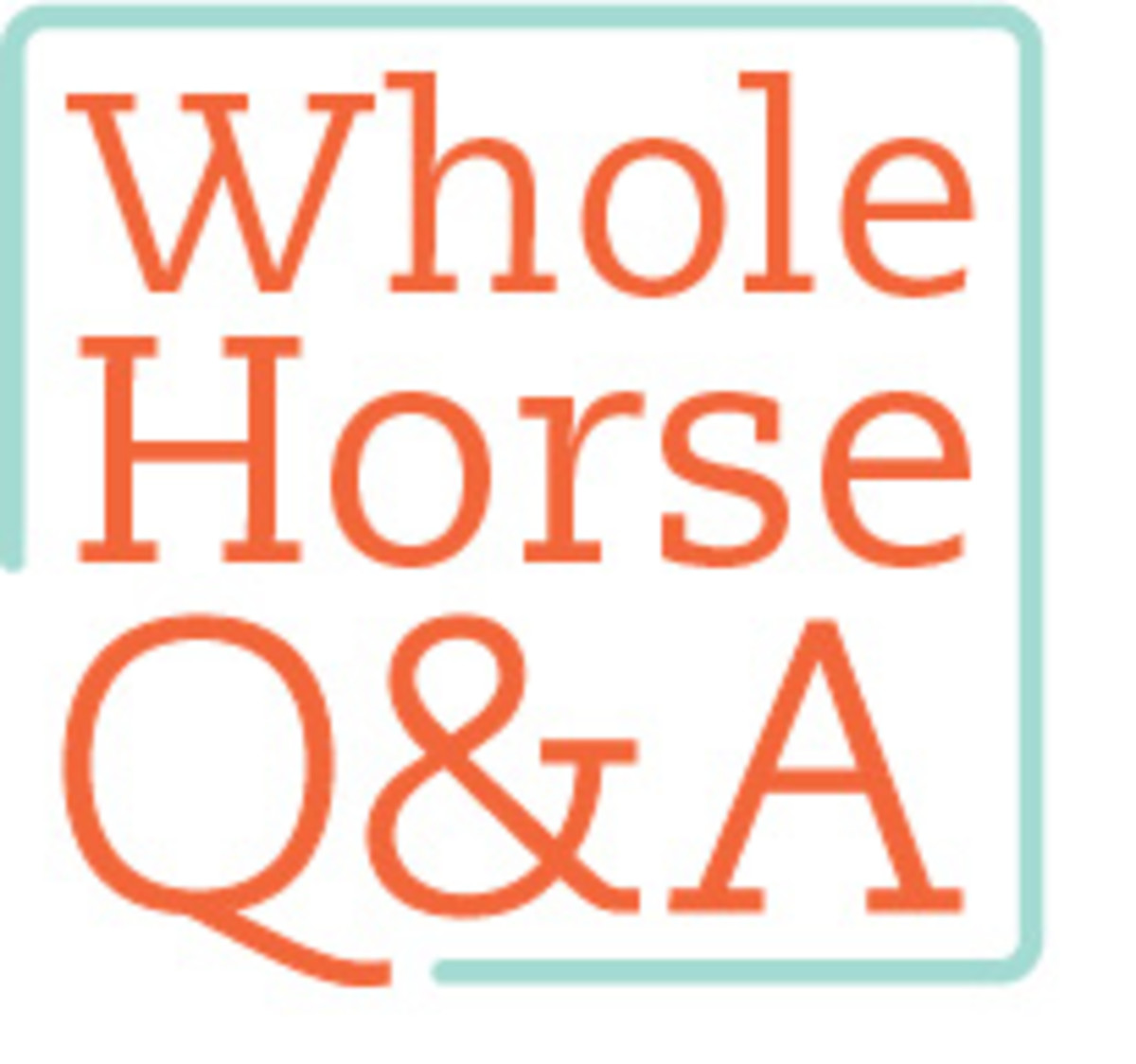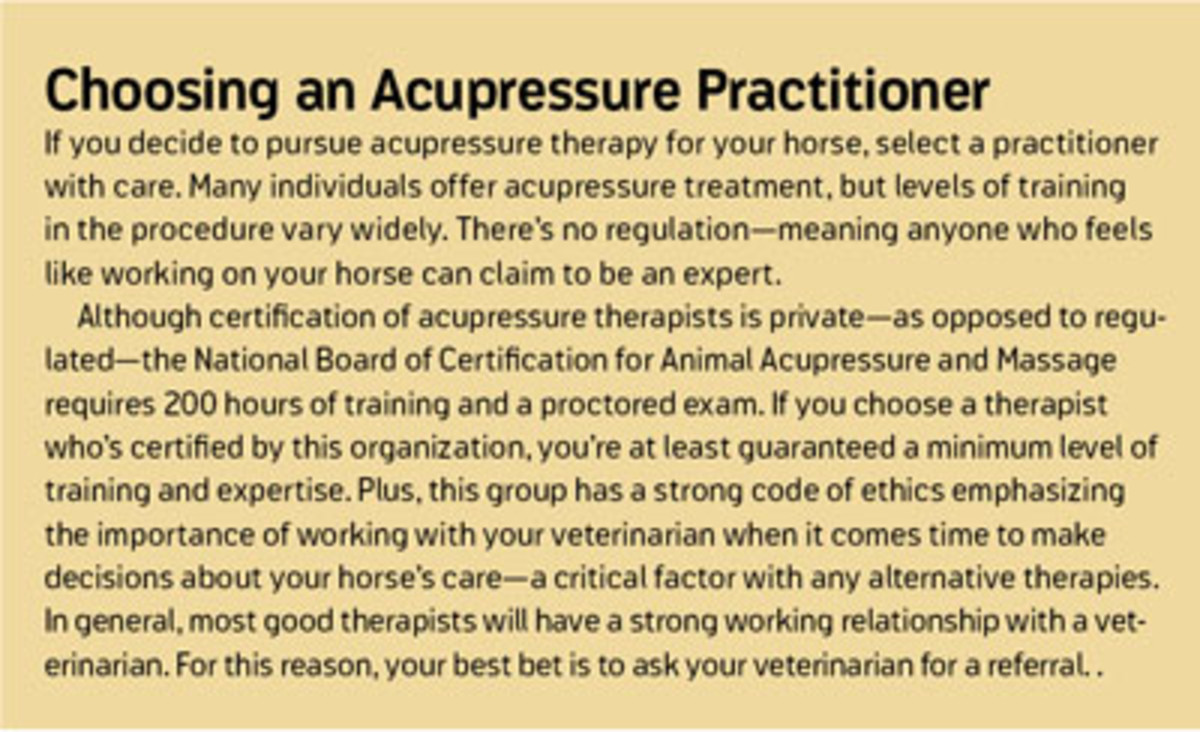Q I’m hearing more and more about equine acupressure. How does it work, and how can I tell if my horse would benefit from it? Are there any potential negative side effects?

Leo Gibson, California
A To understand acupressure, it helps to have a basic knowledge of acupuncture—a procedure where tiny needles are inserted at specific locations on the body for therapeutic purposes.
Acupuncture was originally developed by the ancient Chinese, who believed that these anatomic locations were portals in the skin. Through these portals, the ancient acupuncturist could access meridians, or energy channels, that were believed to communicate with internal organs.
Experiment-based research has since shown us that these “acupoints” are actually anatomic locations particularly rich in nerve endings and/or blood vessels. When needles are placed in these locations, neurotransmitters and other local factors are released, starting cascades that ultimately lead to body-wide therapeutic effects.

Typically, acupuncture is considered a therapy that provides pain relief and increased blood flow to aid musculoskeletal conditions. But it can also be used to treat such medical conditions as allergies, heart or lung problems, and even infertility.
That’s acupuncture, and acupressure is quite similar. Simply put, acupressure involves stimulation of acupuncture points with pressure, rather than with needles. Because most state laws restrict treatment with needles to licensed veterinarians, acupuncture can be performed only by a veterinarian. By replacing needles with pressure, however, laypersons are allowed to apply the treatment.
Equine veterinarians use acupuncture for a wide variety of purposes. It’s particularly helpful in managing performance-related muscular soreness, compensatory soreness secondary to other injuries, or simply for maintaining a hard-working horse at his peak.
Acupressure is commonly used with similar goals in mind. Veterinarians who regularly use acupuncture to treat horses believe that needles may be more effective than pressure, although some advocate acupressure to help maintain a horse between acupuncture treatments. And if acupuncture isn’t available, your horse might benefit from acupressure alone.
The beauty of acupressure is that it really can “do no harm.” At best, it may help make your horse more comfortable so he can perform at his peak. At worst, he’ll simply enjoy the massage!
Barb Crabbe, DVM
Pacific Crest Sporthorse
Equine Veterinary Services
pacificcrestsporthorse.com






